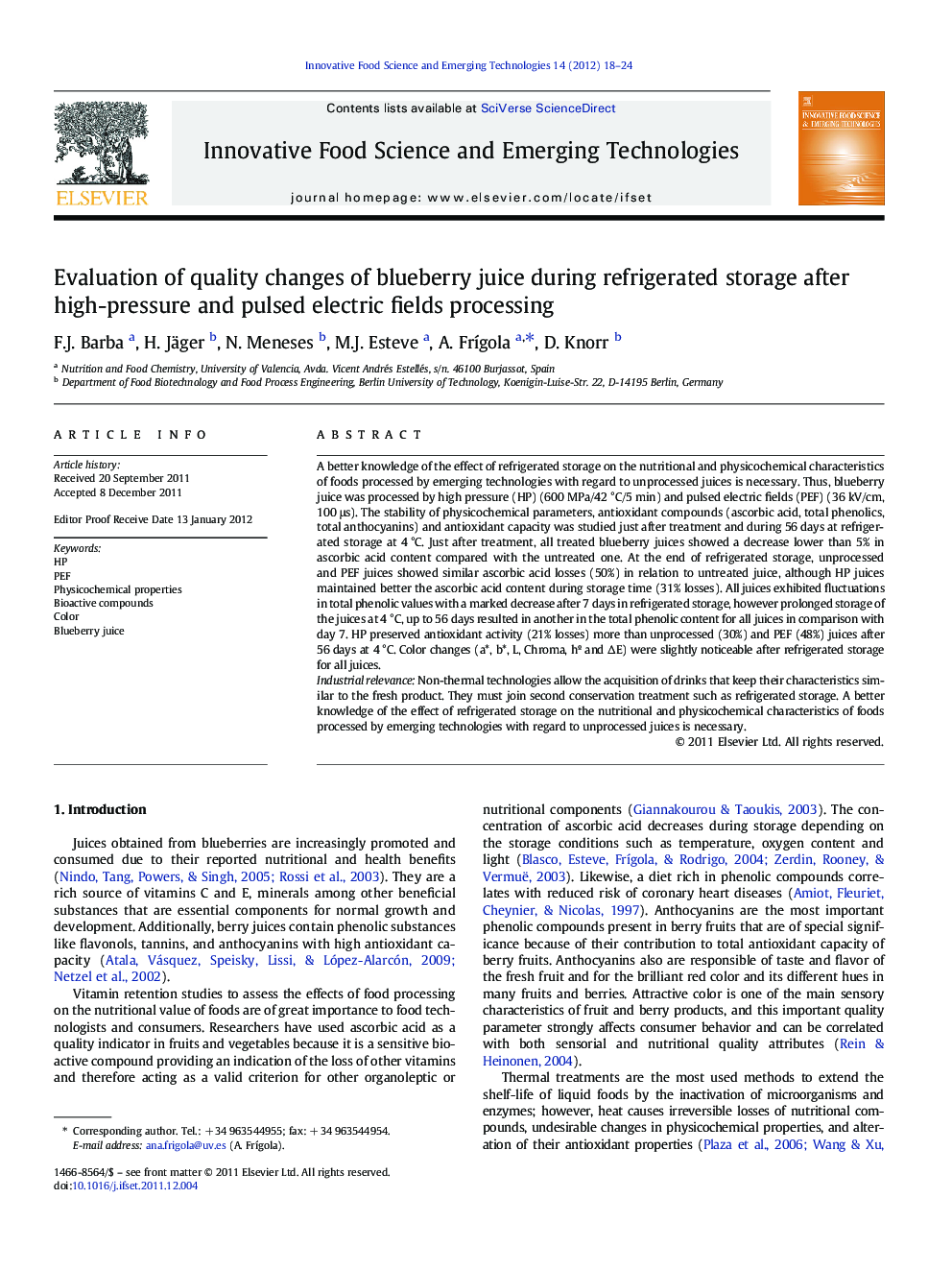| Article ID | Journal | Published Year | Pages | File Type |
|---|---|---|---|---|
| 2086909 | Innovative Food Science & Emerging Technologies | 2012 | 7 Pages |
A better knowledge of the effect of refrigerated storage on the nutritional and physicochemical characteristics of foods processed by emerging technologies with regard to unprocessed juices is necessary. Thus, blueberry juice was processed by high pressure (HP) (600 MPa/42 °C/5 min) and pulsed electric fields (PEF) (36 kV/cm, 100 μs). The stability of physicochemical parameters, antioxidant compounds (ascorbic acid, total phenolics, total anthocyanins) and antioxidant capacity was studied just after treatment and during 56 days at refrigerated storage at 4 °C. Just after treatment, all treated blueberry juices showed a decrease lower than 5% in ascorbic acid content compared with the untreated one. At the end of refrigerated storage, unprocessed and PEF juices showed similar ascorbic acid losses (50%) in relation to untreated juice, although HP juices maintained better the ascorbic acid content during storage time (31% losses). All juices exhibited fluctuations in total phenolic values with a marked decrease after 7 days in refrigerated storage, however prolonged storage of the juices at 4 °C, up to 56 days resulted in another in the total phenolic content for all juices in comparison with day 7. HP preserved antioxidant activity (21% losses) more than unprocessed (30%) and PEF (48%) juices after 56 days at 4 °C. Color changes (a*, b*, L, Chroma, hº and ΔE) were slightly noticeable after refrigerated storage for all juices.Industrial relevanceNon-thermal technologies allow the acquisition of drinks that keep their characteristics similar to the fresh product. They must join second conservation treatment such as refrigerated storage. A better knowledge of the effect of refrigerated storage on the nutritional and physicochemical characteristics of foods processed by emerging technologies with regard to unprocessed juices is necessary.
► PEF and HP blueberry juices showed a decrease lower than 5% in ascorbic acid. ► HP juices maintained better the ascorbic acid content during storage. ► HP preserved antioxidant activity more than PEF juices after storage.
